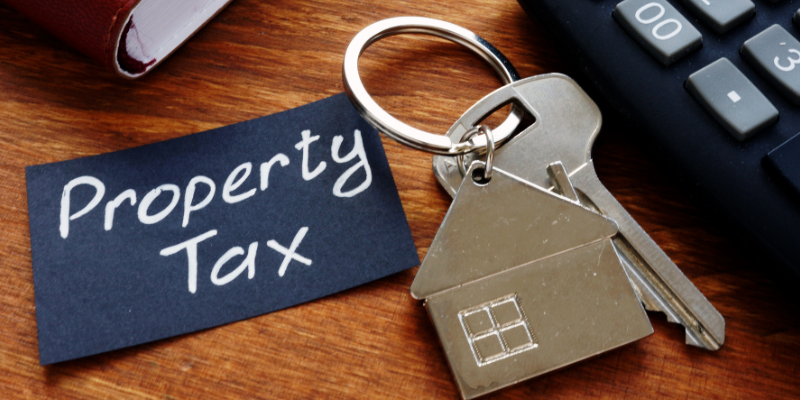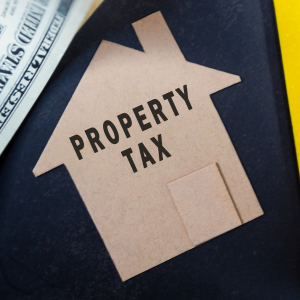
Understanding Kentucky’s Property Tax System: A Comprehensive Guide
Homeowners in Kentucky need to know how the property tax system works because it affects their long-term budgeting and financial obligations. In Kentucky, counties are mostly in charge of property taxes, and rates vary greatly.
Local governments set rates based on budgets and public services, but the state sets the rules. Property owners in Kentucky pay property taxes based on how much their home is worth, which is decided by Property Valuation Administrators (PVAs) in their area.
Regular checks make sure that the market conditions are shown correctly. Kentucky also has tax breaks and programs to help seniors and veterans.
Homeowners in Kentucky who want to manage their costs and save as much money as possible on their property taxes need to understand these details.
Key Factors Influencing Property Tax Rates in Kentucky
Kentucky homeowners should be aware of a number of factors that affect their property tax rates in order to manage their money. Local property assessors use similar sales and other factors to determine a property’s worth.
Property taxes pay for important services like education, infrastructure maintenance, and emergency services, so county and city budgets are very important. Each city or town sets its own millage rate, or tax rate, based on how much money it needs.
Some homes qualify for lower property taxes through homestead exemptions or agricultural classifications. State laws also affect property reassessments and phased-in value increases.
Knowing about these things helps people in Kentucky prepare for changes in their property tax obligations.
How to Calculate Your Property Tax in Kentucky
To determine your Kentucky property taxes, you must know a few things that affect them. The local Property Valuation Administrator determines how much your home is worth, usually a percentage of its fair market value.
The value of most homes in Kentucky is based on their full fair market value. Once you know how much your home is worth, you need to determine your state’s local tax rate.
At a value of one mill, one cent is equal to one-tenth of a cent. To find the property tax, multiply the assessed value by the millage rate in your area.
Levies may come from the county, the city, or a special district. Homeowners should also be aware of tax breaks and exemptions, like the homestead exemption for seniors and veterans, which can lower their tax bill.
By understanding these parts, Kentucky homeowners can calculate their property tax bill each year and plan their finances. Contact Kentucky Sell Now to get help with your property taxes or to learn more.
Comparing Urban and Rural Property Tax Rates Across Kentucky

Kentucky’s cities and rural areas have very different property tax rates, which is important for people who own their own homes. Property taxes usually go up in cities with lots of people, like Louisville and Lexington. This is needed because more people use public services, and the buildings need to be kept in good shape.
Because of their higher property taxes, these cities need more money for schools, public safety, and other city services. In rural areas, on the other hand, property taxes are often lower because fewer people are living there and fewer services need to be maintained.
However, people who live in rural areas might have problems, like not being able to access the services or amenities they need easily. If you want to buy a house in Kentucky or are already living there and want to know how living in different parts of the state will affect your money, these differences are important.
There are big differences in the property tax rates between cities and the country. We can see how important the area is when we buy a house in the state.
Tips for Reducing Your Property Tax Bill in Kentucky
There are several smart things you can do to lower your Kentucky property tax bill. Before a homeowner pays their taxes, they should make sure that the value of their home is correct by comparing it to other homes in the same area. If the value is off, the homeowner may have to pay more taxes.
It is very important to file an appeal with the local Property Valuation Administrator (PVA) office if problems are found. Also, Kentucky homeowners should look into any exemptions and deductions that are available. For example, the homestead exemption for people over 65 or the disabled veterans’ exemptions can lower taxable value by a large amount.
Homeowners who make improvements that use less energy may be able to get tax breaks that lower their overall costs. They can also actively take part in discussions that affect their property taxes by attending local government meetings regularly and staying up to date on proposed changes to tax rates or assessments.
Knowing these strategies helps Kentucky homeowners deal with their current tax bills and plan for their long-term finances.
The Impact of School Districts on Kentucky’s Property Taxes
In Kentucky, property taxes pay for public schools, so school districts have a big impact on them. People who own homes should know that the taxes they have to pay vary a lot from one school district to the next.
The tax rates for homes in different school districts may be different because each district sets its own rates. Because of this, the amount of tax people across the state have to pay each year can change by a large amount.
If people are willing to pay more, they move to places with better schools. Because of these changes, the value of homes and taxes are going up. Poor schools may get less tax money, but they can’t use it for things that help students learn.
People in Kentucky should know how the rules and boundaries of their school district affect their property taxes before they buy or take care of a home there.
Navigating Commercial Property Taxes in Kentucky
To understand Kentucky’s business land taxes, you need to know how the tax system works and how it affects business land. Because of small-town taxes, Kentucky’s property tax rates are very different from one county or town to the next. People who own business property should know this.
The assessor in each county examines commercial properties and their uses to determine their market value. Tax owners need to know when their bills are due and how to appeal so they don’t pay too much.
Kentucky commercial property taxes may have assessments from school districts or special districts added to the state assessments. These assessments could be for things like fire safety, public transportation, or school districts. Businesses should also look into tax breaks and exemptions that can help them pay less in taxes.
If business owners in Kentucky remember these things, they can better manage their costs and taxes.
Evaluating the Role of Assessors in Determining Kentucky’s Property Taxes

Homeowner property tax rates in Kentucky depend on the assessors. Assessors determine property taxes by determining fair market value.
They must accurately assess market conditions to ensure equitable taxation across communities. Comparable sales analysis and cost approaches help Kentucky assessors estimate property values.
They also consider property size, location, and condition. Assessors must be precise and fair because these assessments affect homeowners’ property taxes.
Kentucky law also requires periodic reassessments to update valuations and reflect real estate market changes in tax calculations. Understanding how assessors work helps homeowners understand how their property tax bills are calculated and emphasizes transparency and accountability.
How Economic Growth Affects Property Taxes in Different Regions of Kentucky
Regional property tax rates in Kentucky depend on economic growth. Economic development in the state can boost property tax revenues due to rising property values and employment.
Local governments may adjust property tax rates to fund essential services and infrastructure improvements in high-growth areas, boosting the local economy. In areas with slower economic growth or declining industries, property values may stagnate or decline, lowering property tax assessments.
This economic diversity in Kentucky affects how counties set property tax rates to balance revenue needs with homeowner affordability. Kentucky homeowners must understand these dynamics to understand the effects of regional economic conditions on property taxes.
If you’re thinking about selling, knowing the local tax rate is key. To make the process easier, choose a company that buys homes in Louisville, KY, and nearby areas.
Common Mistakes to Avoid When Filing Property Taxes in Kentucky
Kentucky homeowners make several common mistakes when filing property taxes, which can result in unnecessary costs or legal issues. Miscalculating the property’s value can lead to overpaying or underpaying taxes.
Homeowners should understand the assessment process and check their property’s assessed value against market trends. They should also avoid missing appeals or exemption deadlines, which, if handled properly, can provide significant financial relief.
Kentucky tax deductions and credits, such as the homestead exemption for seniors and disabled veterans, should not be overlooked. Clear communication with local tax authorities is crucial to avoid penalties for misinterpreting billing notices and payment requirements.
Resolving disputes and discrepancies requires homeowners to keep detailed filing and payment records, which many do not. Finally, using outdated information about Kentucky’s property tax laws instead of current resources could lead to errors that could have been avoided by staying current on legislative changes.
The Relationship Between Real Estate Market Trends and Tax Rates in Kentucky
Kentucky homeowners must understand real estate market trends and property tax rates. Market conditions affect property values and tax assessments.
Local governments may raise tax assessments to reflect rising property values in a real estate market. Periodic reassessment schedules may delay tax assessments if the market declines and property values fall.
Kentucky uses a unique system that considers fair market values and classification standards that may affect property taxes. Economic factors like supply and demand affect these valuations, which affect property tax revenue expectations for municipal services.
Homeowners should monitor economic indicators and local real estate trends to predict property tax changes.
The Role of Local Governments and Municipalities in Setting Tax Rates in Kentucky
Local governments and municipalities set property tax rates in Kentucky, which affect homeowners. Local governments assess property values and calculate revenue to fund public education, infrastructure maintenance, law enforcement, and emergency services.
County fiscal courts, city councils, and school boards set rates based on budgetary needs and projected spending. Property Valuation Administrators (PVAs) assess each county’s real estate values.
After assessments, local governments analyze public service financial needs and adjust tax rates to meet them while considering state law. Kentucky homeowners should know that these tax rates can vary greatly between counties and municipalities due to local government priorities and fiscal strategies.
Understanding how these entities affect taxation can help homeowners predict property tax bill changes and participate more in local governance. Kentucky Sell Now can help you navigate these changes and stay informed.
Reviewing Federal Influence on State-level Property Tax Policies: A Look at Kentucky
When examining the influence of federal policy on state-level property tax rates in Kentucky, it is crucial to understand how national regulations and economic factors shape local taxation frameworks. While property taxes are predominantly governed at the state and local levels, federal policies can indirectly impact Kentucky homeowners through broader economic influences such as fiscal policy, mortgage interest deductions, and housing market conditions.
Federal initiatives aimed at stimulating economic growth or adjusting monetary policy can affect home values and, consequently, property assessments that determine local tax obligations. The interplay between federal tax reforms and state budgets also shapes Kentucky’s approach to property taxation.
For instance, changes in federal funding for state programs may necessitate adjustments in how Kentucky sets its property tax rates to maintain public services without overburdening homeowners. By understanding these complex interactions, Kentucky homeowners can better grasp how national trends might influence their property’s assessed value and subsequent tax liabilities within the state’s specific regulatory framework.
What Is the Property Tax Rate in Kentucky?

The property tax rate in Kentucky is an essential consideration for homeowners, as it directly impacts the overall cost of owning a home. In Kentucky, property tax rates vary by county and are determined based on the assessed value of your property.
The state mandates that properties be assessed at 100% of their fair cash value, which serves as the basis for calculating property taxes. On average, Kentucky’s effective property tax rate is relatively low compared to the national average, making it an attractive state for homeowners.
However, it’s important for homeowners to understand that while the state’s base rate might seem modest, individual counties and municipalities can impose additional levies or special assessments that affect your final tax bill. Knowing how these rates are applied and how often reassessments occur can help Kentucky homeowners budget effectively and anticipate potential changes in their annual property tax obligations.
It’s also beneficial to be aware of any available exemptions or relief programs that could lower your taxable amount, such as homestead exemptions for senior citizens or veterans. By staying informed about local ordinances and keeping track of assessment notices, Kentucky homeowners can better manage their financial responsibilities related to property taxes.
Understanding the property tax rate is important when you sell your home for cash in Kentucky, as it can impact your final proceeds.
Do People Over 65 Pay Property Taxes in Kentucky?
In Kentucky, homeowners aged 65 and older may qualify for property tax relief through the Homestead Exemption program. This program allows eligible seniors to reduce their property’s assessed value by a specific amount, effectively lowering the property taxes they owe.
To qualify, seniors must own and occupy their home as their primary residence. The exemption amount is adjusted every two years based on inflation, ensuring that it remains impactful for senior homeowners in Kentucky.
While people over 65 are not entirely exempt from paying property taxes, the Homestead Exemption provides significant financial relief by decreasing the taxable portion of their home’s value. Kentucky seniors must understand these benefits and apply for the exemption to take advantage of the reduced property tax rates available to them.
Is Kentucky a High Tax State?
When evaluating whether Kentucky is a high tax state, particularly in terms of property taxes, it’s essential to examine the specific components that contribute to the overall tax burden for homeowners. Kentucky’s property tax rates are relatively moderate compared to national averages, providing some relief for homeowners concerned about high taxation.
The state employs an assessed value system, where local governments determine rates based on the fair market value of properties. While Kentucky doesn’t have the highest property taxes in the nation, homeowners should consider other factors like sales and income taxes when assessing their overall tax liability.
Additionally, variations in local county and municipal rates can affect individual experiences with property taxes across different regions within the state. Understanding these nuances helps Kentucky homeowners make informed decisions about their investments and financial planning, ensuring they are not overly burdened by high taxation while enjoying the benefits of homeownership in the Bluegrass State.
How Are Property Taxes Assessed in Kentucky?
For Kentucky property taxes, the local Property Valuation Administrator calculates a house’s cash value. As a first step in the assessment process, the PVA carefully reviews all the properties in its area.
Location, property size, improvements, and market trends are all part of the analysis. The fair market value times the local tax rate gives you the property tax amount.
Kentucky homeowners should be aware that tax rates can vary between counties and cities. Local governments must balance their budgets and pay for public services like schools and roads. Kentucky also lets seniors and disabled homeowners get homestead exemptions, which lower their taxable value.
Homeowners in Kentucky need to know these details to pay their property taxes.
Selling your home doesn’t have to be a hassle. Kentucky Sell Now buys houses as is with no repairs, fees, or waiting. Get a fair cash offer, and let us handle the details. Call (502) 610-0070 for your no-obligation offer today.
Useful Kentucky Blog Articles
- Can You Sell A Rental With Tenants In Kentucky
- Can I Sell My House With A HELOC In Kentucky
- Can a Cracked Foundation Be Fixed in Kentucky
- Broken Water Main to House in Kentucky
- Understanding Property Tax Rates For Kentucky Homeowners
- Top Property Management Services In Kentucky
- Restoring Fire-damaged Homes In Kentucky
- Foreclosure Timeline For Homeowners In Kentucky
- Can My Husband Legally Sell Our House Without My Consent in Kentucky?
- Understanding Kentucky Inheritance Laws For Real Estate And Housing
- Downsizing House With Kids in Kentucky: Creating A Cozy Tiny Home Lifestyle With Kids

| REAL PROPERTY | COUNTY CLERK | MEDIAN | WARREN COUNTY | JEFFERSON COUNTY | FEE |
![we buy houses for cash [market_city]](https://image-cdn.carrot.com/uploads/sites/31685/2022/11/We-Buy-Houses-Cash-Home-Buyers.png)
